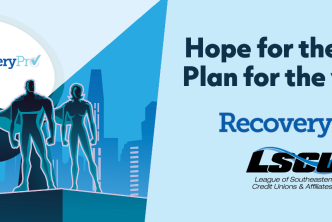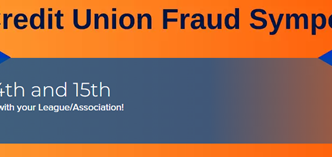In 2022, the Consumer Financial Protection Bureau increased fair lending examinations by 146% since 2020. The CFPB, along with other agencies, cited 174 institutions for violations of the Equal Credit Opportunity Act and/or Regulation B. The Department of Justice’s initiative to combat redlining initiatives cost financial institutions $40 million in the first half of 2023 alone. According to Consumer Outlook, in 2022, 59.4% of all Federal Reserve violations were Home Mortgage Disclosure Act-related. If your credit union has not made fair lending a priority in the past, you should schedule a review in 2024 to determine what areas need improvement and to show a concerted effort of your attempt to correct weaknesses within your program.
Credit unions are not seeking to discriminate against members, but mistakes do happen, leaving you at risk of compliance violations, severe fines, and reputational damage. To ensure compliance, it is important to appropriately analyze your data to uncover fair lending disparities. Focus not only on loan data but also complaints and fee waivers.
By having this visibility, you can adjust as needed, protecting your institution from violations and ensuring members receive the best – and fairest – service. Choosing not to analyze data increases fair lending risk, leaving open the possibility examiners will find a problem you did not.
Financial institutions are required to implement fair lending practices, conduct regular fair lending risk assessments, and take corrective actions if any discriminatory practices are identified. It is important for lenders to establish and maintain fair lending policies and procedures, provide training to employees, and monitor lending practices to prevent discrimination and promote equal access to credit for all individuals and communities. Non-compliance with fair lending laws can result in legal consequences, financial penalties, and damage to the reputation of the institution.
From a litigation perspective, discrimination cases are often based on one of two theories – “disparate treatment” or “disparate impact.” A standard disparate treatment case involves a conscious decision by the credit union to discriminate against an applicant on a prohibited basis. On the other hand, disparate impact cases are far more nuanced and fact-intensive. These types of cases involve a facially neutral policy that has a disparate impact, or disproportionate burdens, on members of a protected class. Disparate impact cases do not require applicants to demonstrate an intent to discriminate and may be proven using statistical evidence.
The National Credit Union Administration (NCUA) identifies the following four fair lending best practices:
- Develop Written Fair Lending Policies and Procedures
- Identify Risks by Conducting Periodic Fair Lending Risk Assessment
- Develop a Fair Lending Program Based on Results of Risk Assessments
- Stay Current of Fair Lending Developments
If you would like to schedule a fair lending review with the League of Southeastern Credit Unions’ (LSCU) Shared Compliance Services, please contact Tony Roberts at tony.roberts@lscu.coop.
Fair Lending Resources





